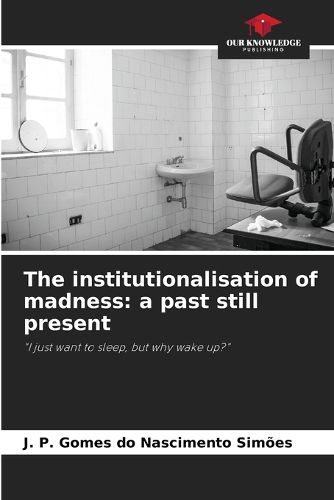Readings Newsletter
Become a Readings Member to make your shopping experience even easier.
Sign in or sign up for free!
You’re not far away from qualifying for FREE standard shipping within Australia
You’ve qualified for FREE standard shipping within Australia
The cart is loading…






This study aims to investigate the meaning produced by mental health users in relation to the condition of being institutionalised in a hospital, using the Brazilian Mental Health Policy as a reference base. The results show that the perception of mental disorder has its own characteristics for each participant, but shares the same idea: that mental disorder is considered a complex, bad and painful condition for those who experience it. Long stays in hospital, on the other hand, have several meanings: imprisonment, idleness, curing addiction and belonging to the institution, as they see the hospital as a resource they can count on in the absence of their families, but they make it clear that they don't want to live in that environment for long. We found that a large proportion of institutionalised people have a mental disorder, but these are complaints and symptoms that do not justify prolonged hospitalisation, not least because they are all being discharged and this is exclusively a political and social issue.
$9.00 standard shipping within Australia
FREE standard shipping within Australia for orders over $100.00
Express & International shipping calculated at checkout
This study aims to investigate the meaning produced by mental health users in relation to the condition of being institutionalised in a hospital, using the Brazilian Mental Health Policy as a reference base. The results show that the perception of mental disorder has its own characteristics for each participant, but shares the same idea: that mental disorder is considered a complex, bad and painful condition for those who experience it. Long stays in hospital, on the other hand, have several meanings: imprisonment, idleness, curing addiction and belonging to the institution, as they see the hospital as a resource they can count on in the absence of their families, but they make it clear that they don't want to live in that environment for long. We found that a large proportion of institutionalised people have a mental disorder, but these are complaints and symptoms that do not justify prolonged hospitalisation, not least because they are all being discharged and this is exclusively a political and social issue.